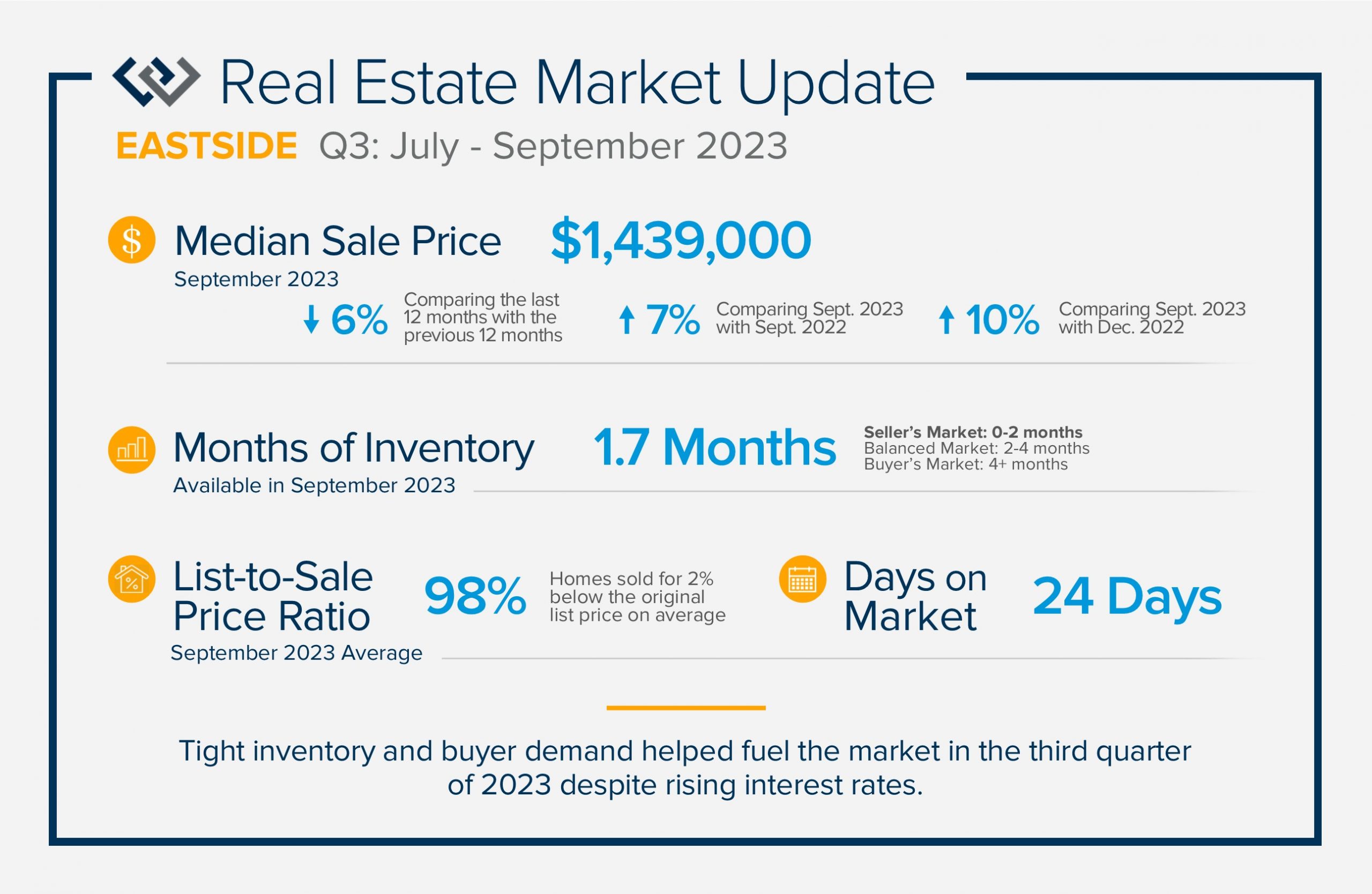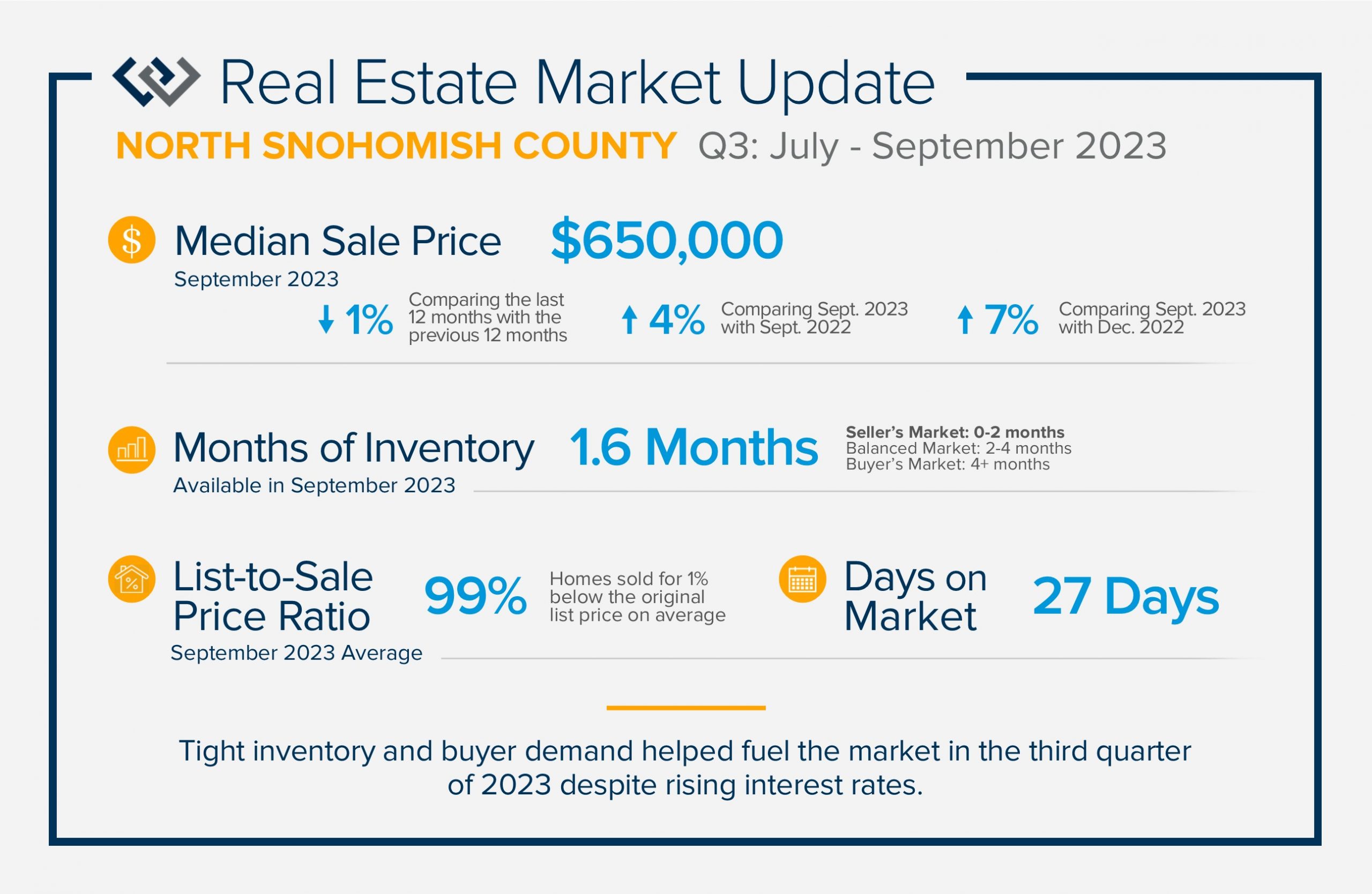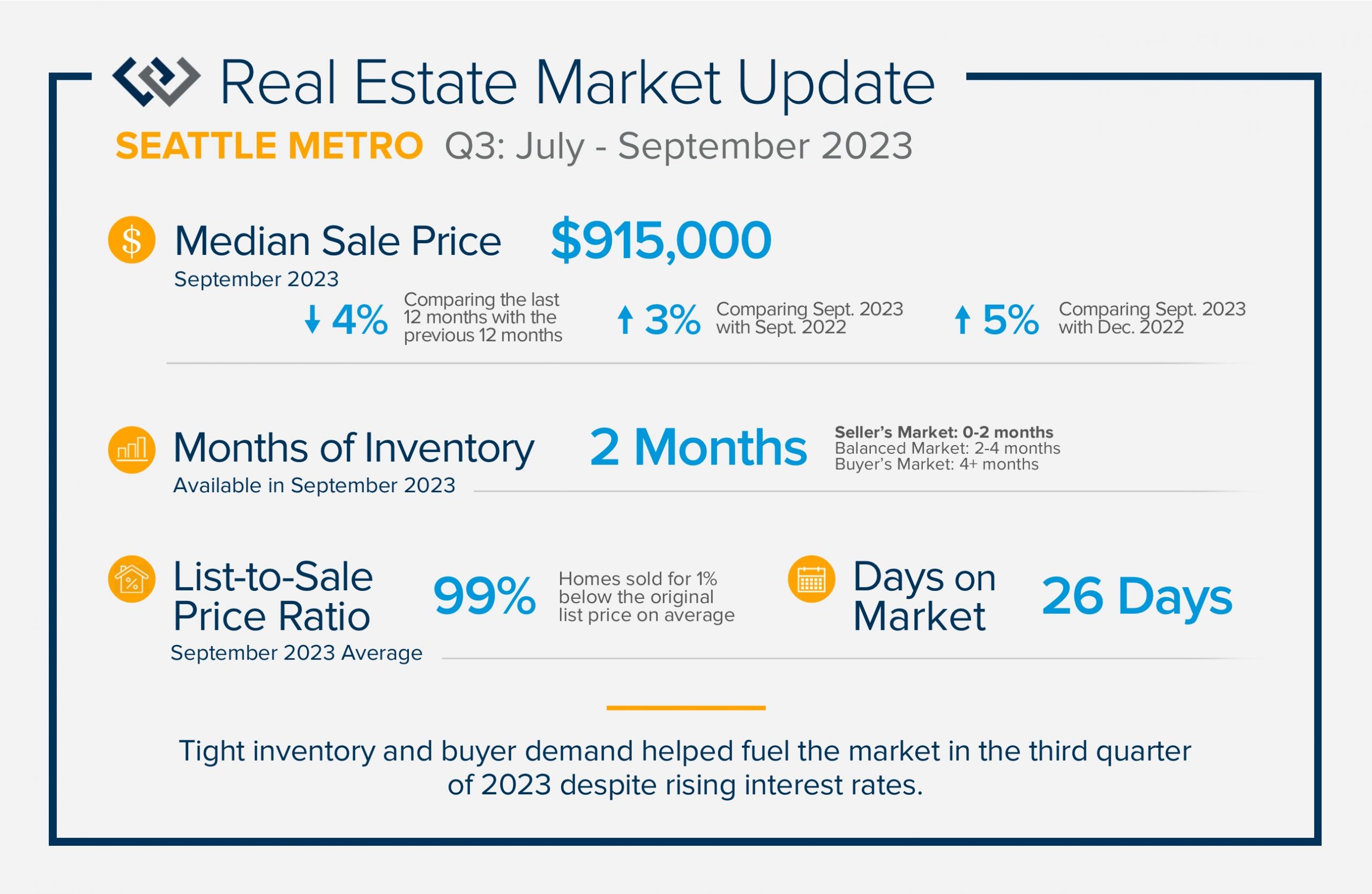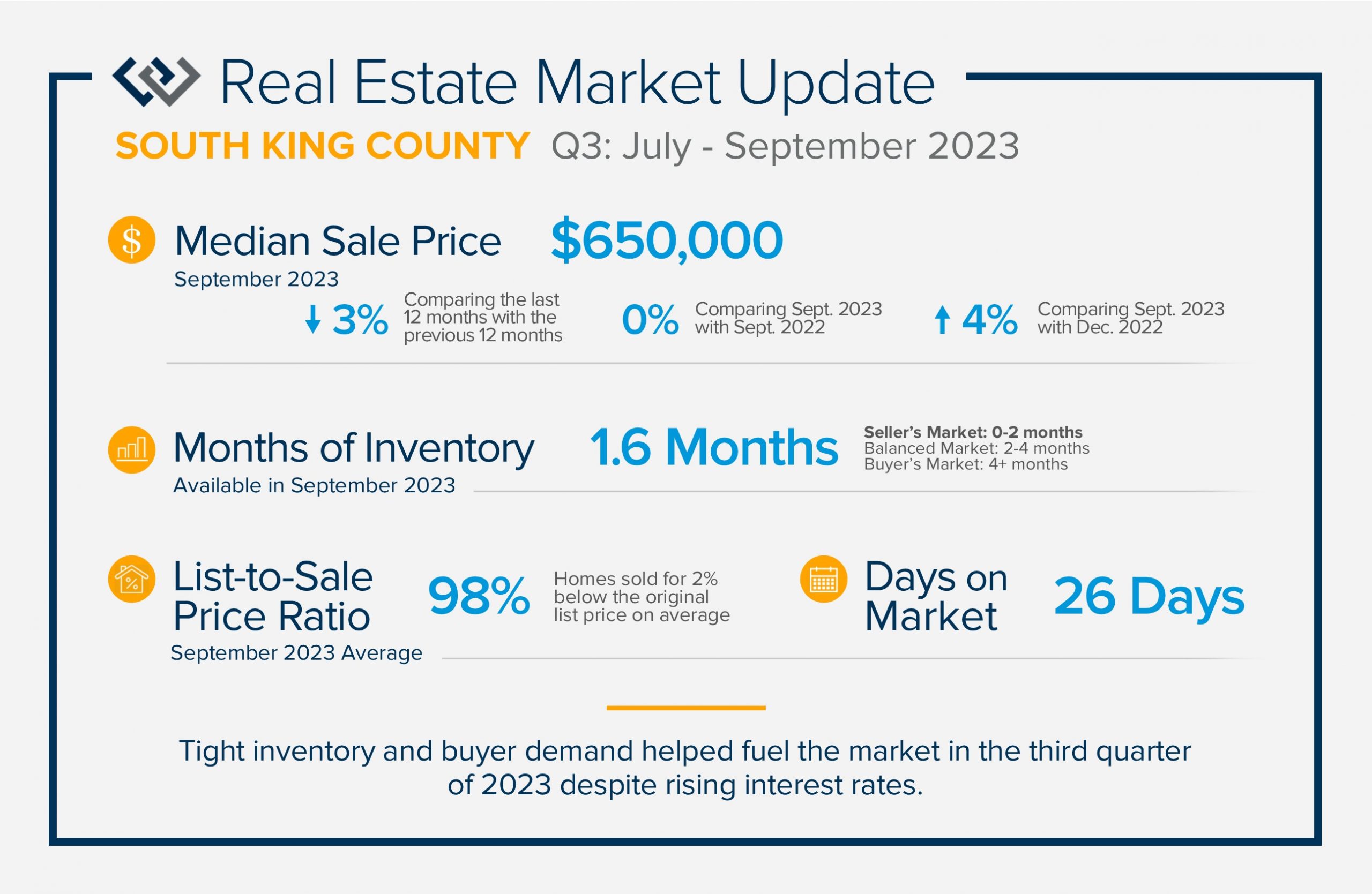When Punxsutawney Phill climbed up to his perch at Gobblers Knob on February 2nd and did not see his shadow, an early spring was predicted. Little did we know that he would be referring to the real estate market! As we experience temps in the 30s and scattered snow showers in the first week of March, we are also experiencing a white-hot seller’s market.
We started 2024 with the lowest amount of inventory we have seen since the beginning of 2022. Over the last 2 years, we have experienced a correction and recovery in the real estate market due to inflation and interest rates. The market peaked in April 2022 in Snohomish County when the median price reached $830,000, and in May 2022 in King County when prices reached $1M. Prices started to correct when rates crested 5% in April 2022 and then found themselves squarely at 7% by October 2022. This rapid 2-point increase put downward pressure on prices and stalled buyer and seller demand.
Loan servicing affordability caused prices to bottom out in Snohomish County in February 2023 at $685,000, and in King County in January 2023 at $800,000. The bulk of the correction took place in 2022, and 2023 was the year of resetting price stability and the return of appreciation. What was fascinating about this growth is that interest rates still averaged around 7% throughout 2023.
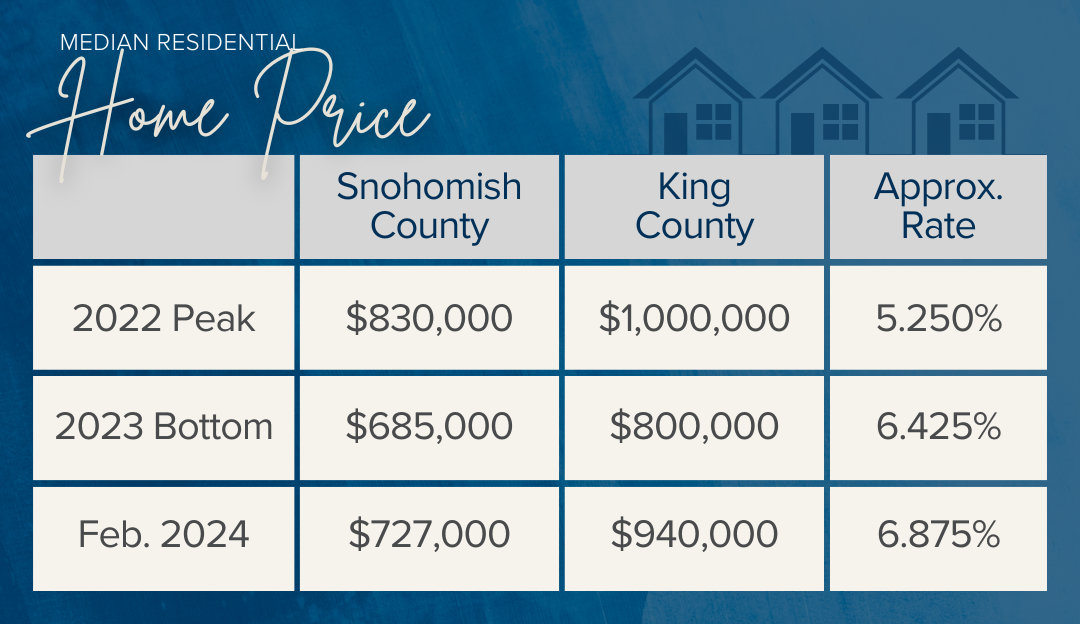
In Snohomish County prices were up 6% in February 2024 over February 2023, and in King County they were up 16%, and rates are still hanging around 7%. Since the first of the year, it was like a switch went off for many buyers and demand flooded the market. The feedback that I am hearing is that many buyers have adapted to the new normal of interest rates and will refinance when rates come down; but they want to buy now. The increase in buyer demand coupled with the lowest inventory we’ve seen in two years has caused a flurry of multiple offers, price escalations, and an early start to the spring market.
Now that we are certain buyers are back, the next effective change in the market would be the addition of more inventory. This would meet the demand and create more movement in the market. We are well aware that many homeowners are reluctant to make a move because they don’t want to give up their low rate/payment. We also know that because of this, many would-be sellers are living in homes that do not match their needs and wants.
This pent-up seller demand is starting to come to market, but more is needed. The average level of equity in Snohomish County was reported at the end of 2023 at 57.5% and in King County at 60%. With the recent uptick in median price, this level is growing, which will allow many sellers to move their equity into a home that better fits their lifestyle. This growth should also be supported by interest rates slowly coming down throughout 2024.
The latest predictions from the Home Price Expectation Survey (HPES) have rates decreasing to 6% by the end of 2024 which will only add to buyer demand, highlighting the need for more listings. If you are a homeowner and your house is not matching your life, now might be the time to consider a move! What has already transpired in the first 2 months of 2024 has been encouraging for seller gains.
Writing a playbook and creating a strategy to make these transitions requires a well-curated plan. It is my mission and passion to help clients make these moves. There can be challenges to overcome along the way, such as does one sell or buy first and how to do you get your home ready for market. Tools such as the Windermere Bridge Loan, The Windermere Ready Loan, and other alternative financing have helped make these dreams become a reality. That is why hiring a professional who is well-versed in market knowledge, creative planning, expert marketing, and keen negotiations is key!
Please reach out if you or someone you know is curious about the market and how it relates to your financial and lifestyle goals. Real estate reflects life and if there is one constant in life, it is change! Helping people match their homes to their lives is one of the most rewarding aspects of my job. The adjustments over the past two years got in the way of many people making those matches. As the market and consumer confidence continue to open up, don’t let this opportunity pass you by. It is my goal to help keep my clients well-informed and empower strong decisions whether that works for you now or sometime down the road. Let’s talk it out, dig deep into the trends, and start your strategic planning with no pressure.
 Facebook
Facebook
 X
X
 Pinterest
Pinterest
 Copy Link
Copy Link












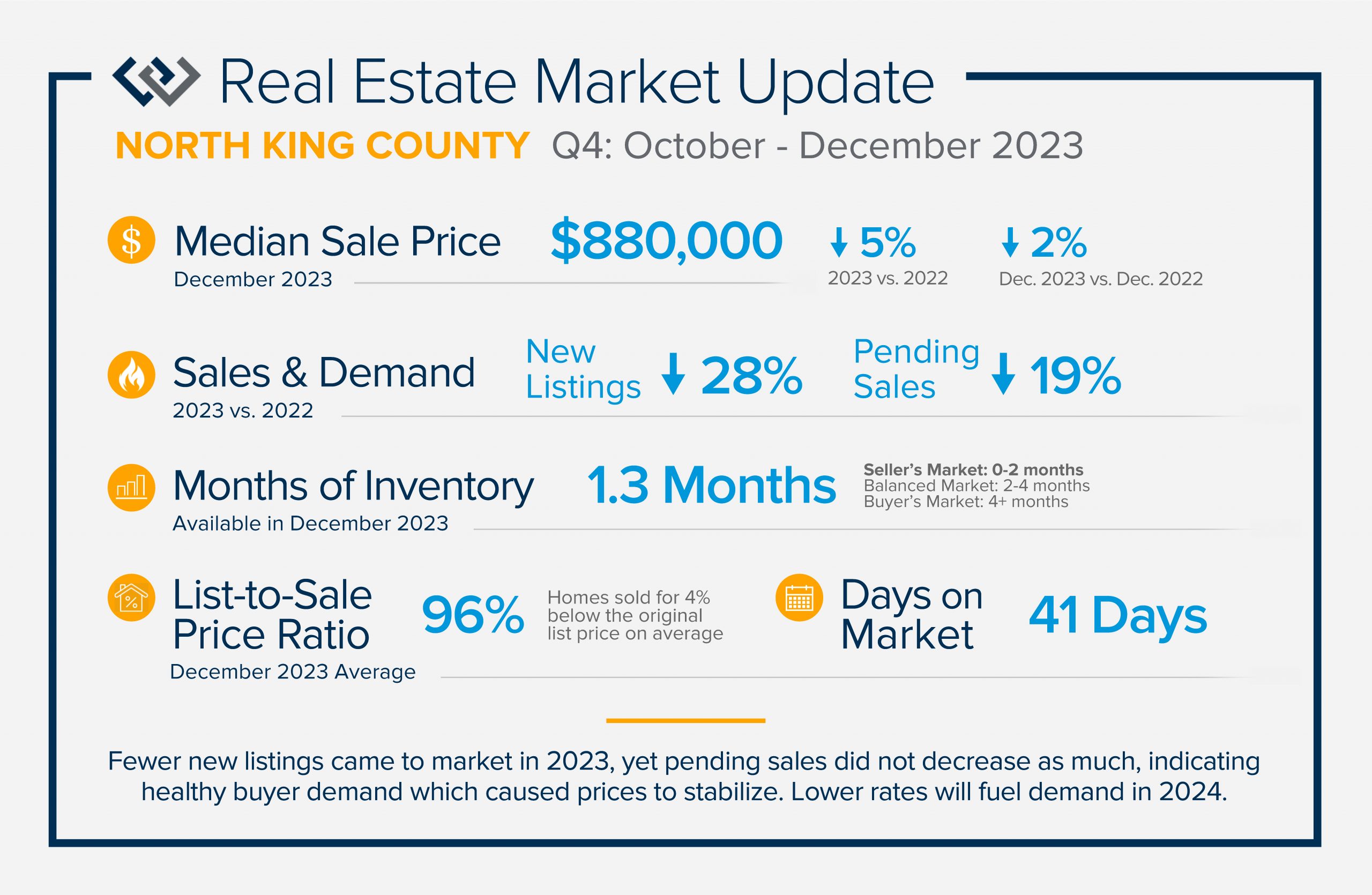
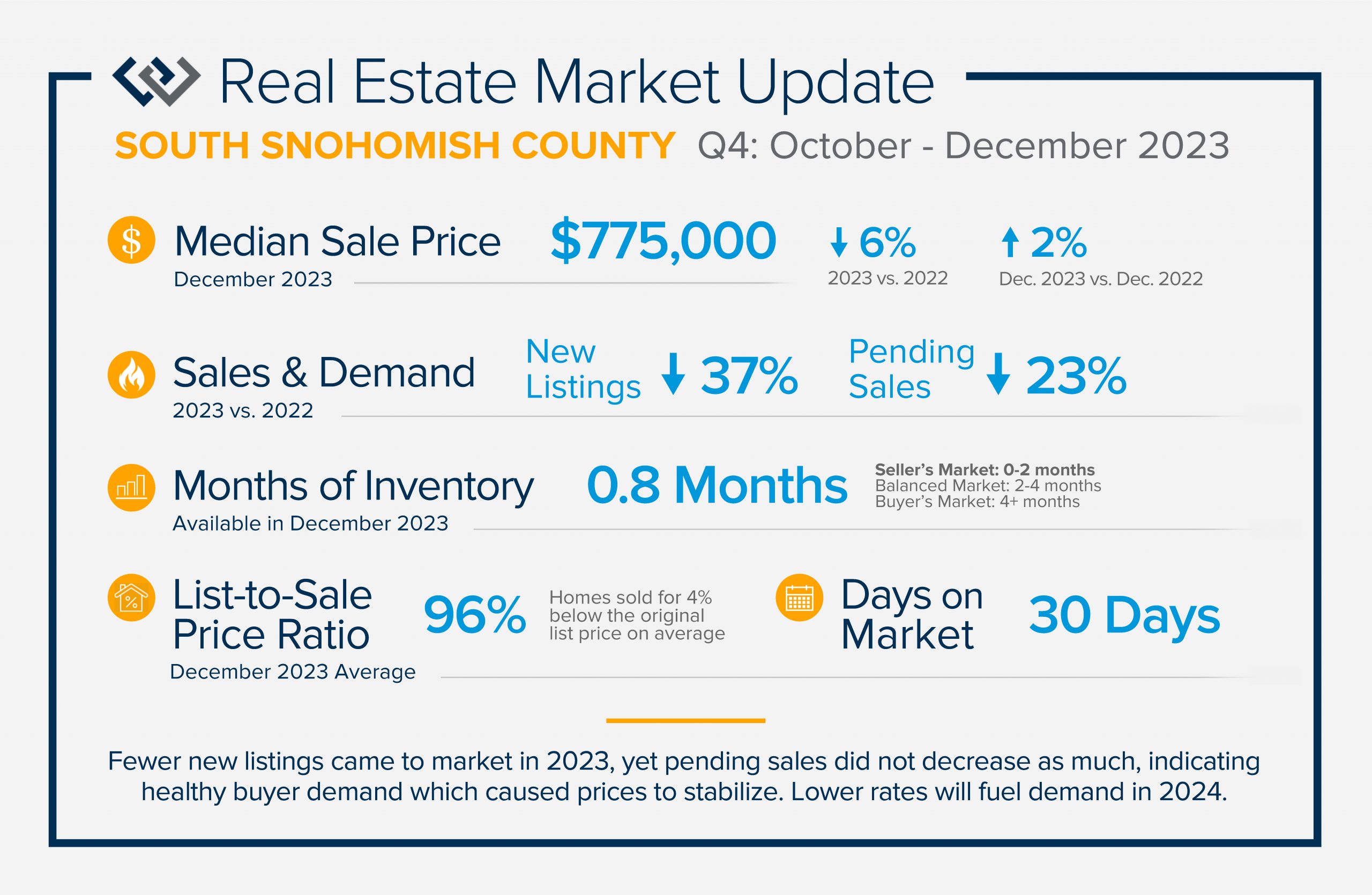 The story of 2023 was balancing interest rates with home purchases and even home sales. The average weekly rate in 2023 was 6.8% and peaked in October at 7.94%. This caused some buyers to pause due to cost. Many sellers were reluctant to move and give up their low payments based on historically low rates, hence the large decrease in new listings in 2023.
The story of 2023 was balancing interest rates with home purchases and even home sales. The average weekly rate in 2023 was 6.8% and peaked in October at 7.94%. This caused some buyers to pause due to cost. Many sellers were reluctant to move and give up their low payments based on historically low rates, hence the large decrease in new listings in 2023.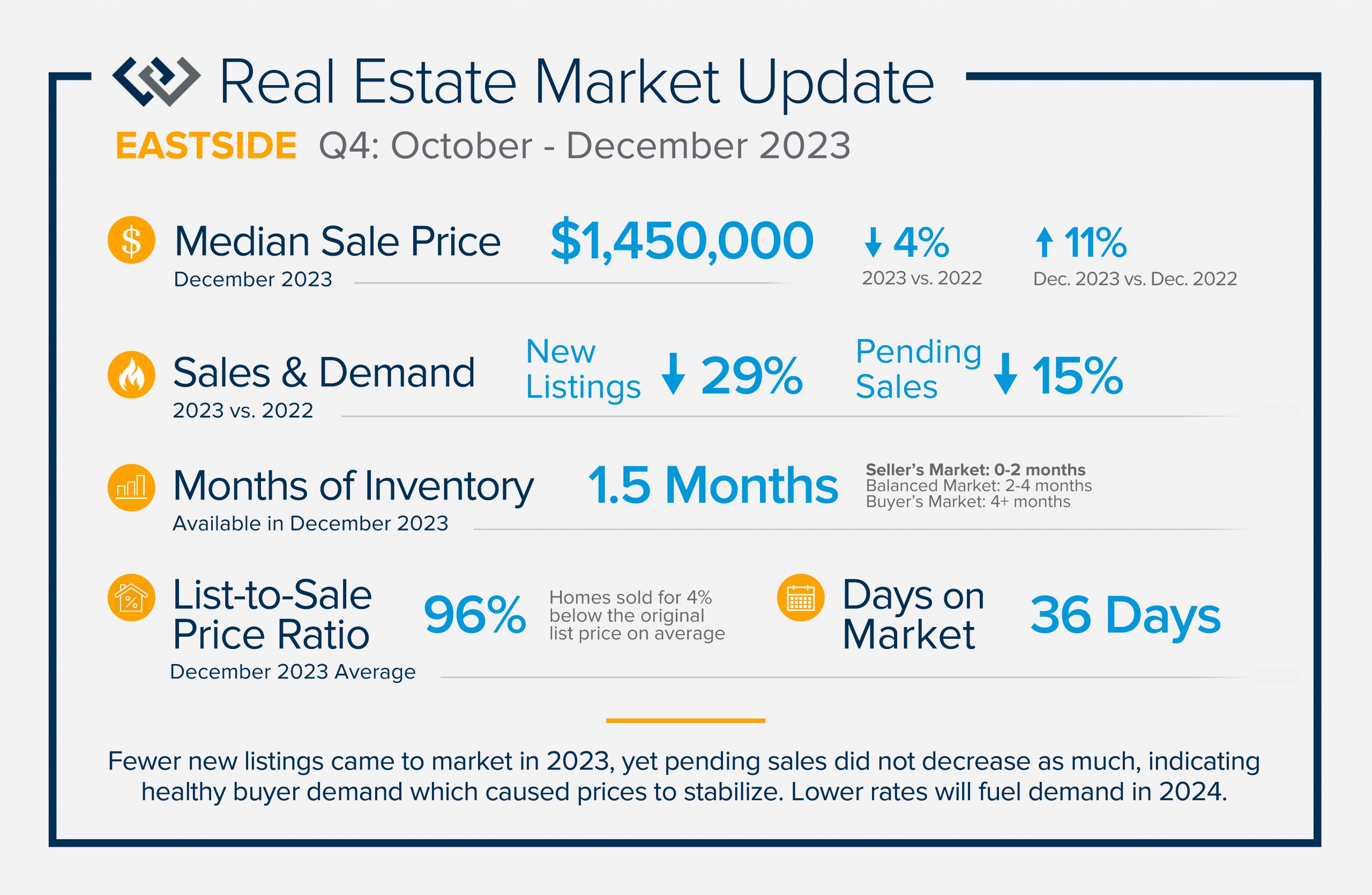
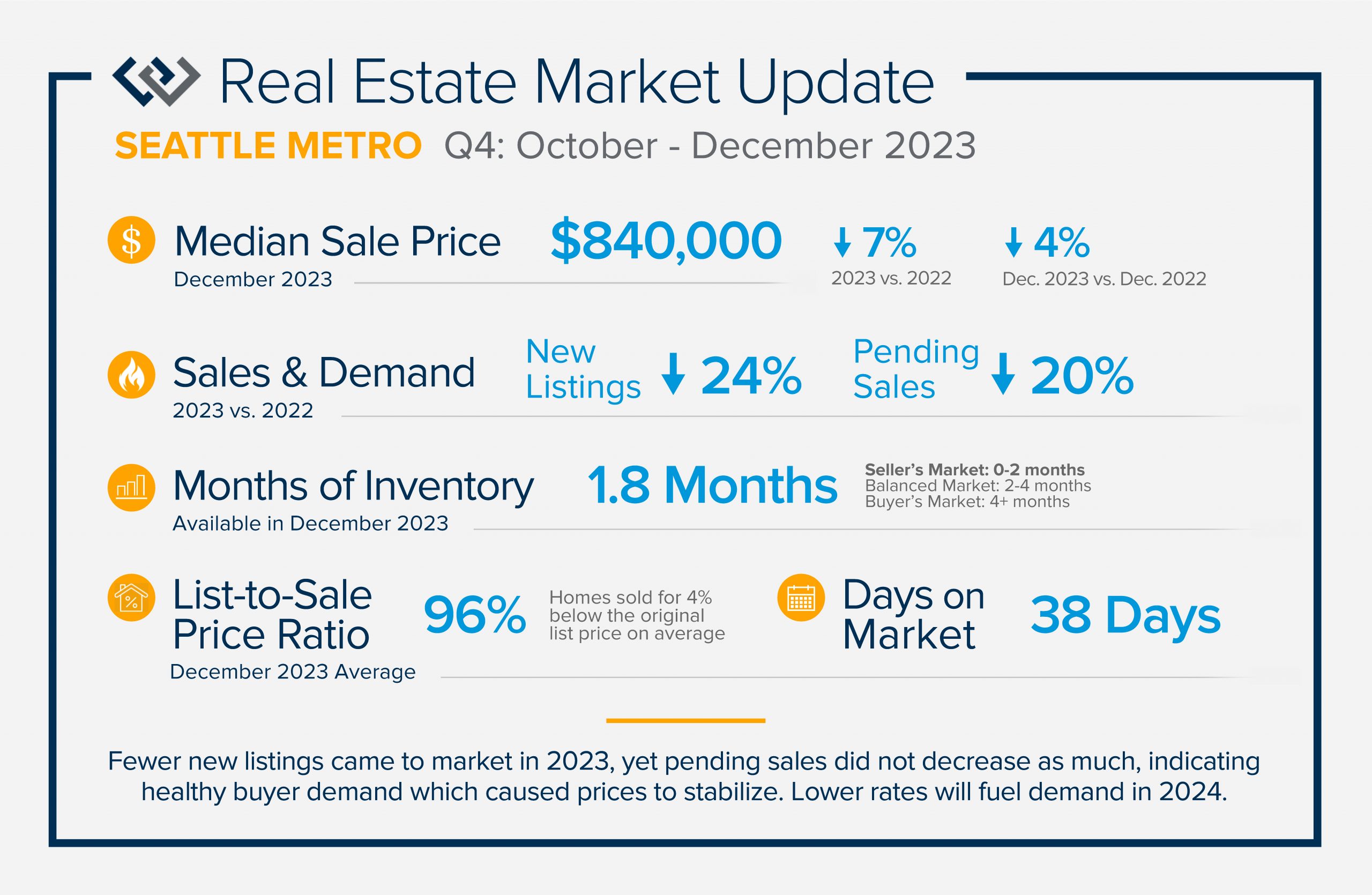
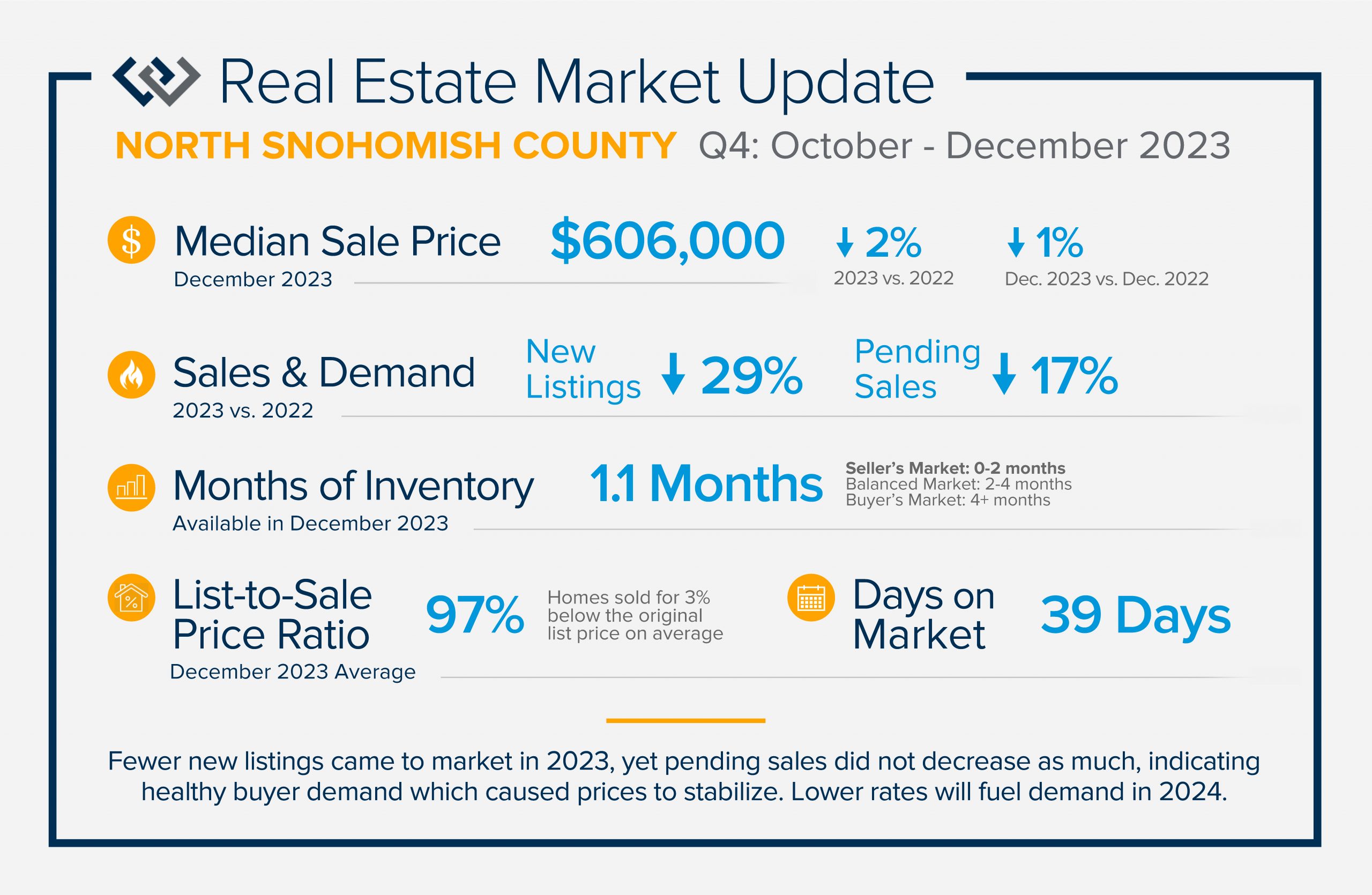
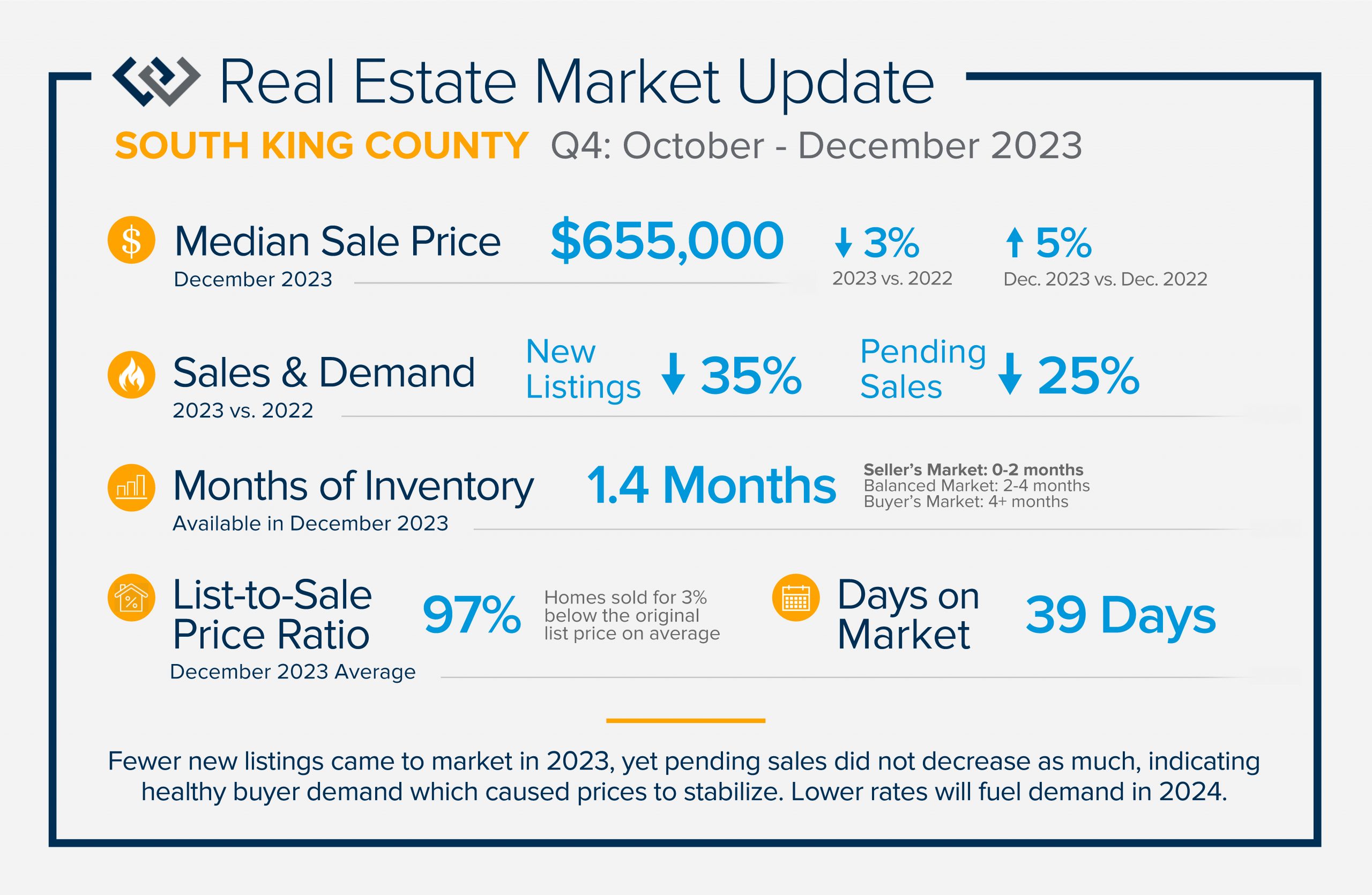

 The holiday season can come and go in a flash, with the pressure and stress of gift shopping, family obligations, and wrapping up the year. One thing that I love about my office is that we all make it a priority to come together to lift up our neighbors in need during this time of year.
The holiday season can come and go in a flash, with the pressure and stress of gift shopping, family obligations, and wrapping up the year. One thing that I love about my office is that we all make it a priority to come together to lift up our neighbors in need during this time of year. Are you curious about the economy during these changing times?
Are you curious about the economy during these changing times?
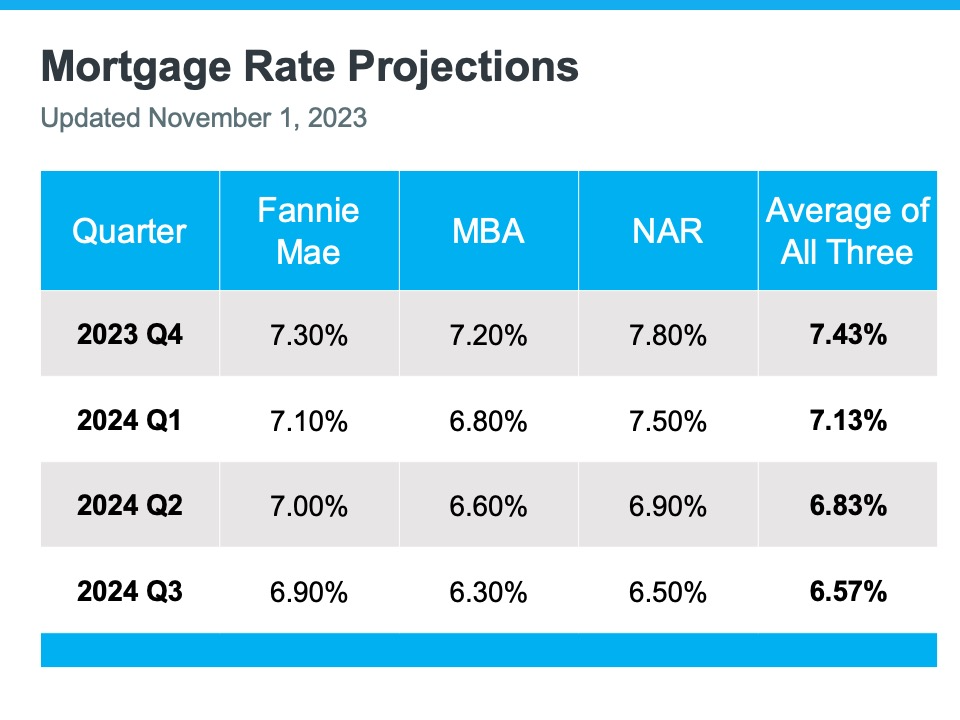 The question that many potential buyers are asking themselves right now is: should I wait for rates to drop before I buy? Higher interest rates have certainly made monthly payments higher and challenged overall affordability, however it is important to consider creative financing options and what the impact on prices will be once rates lower.
The question that many potential buyers are asking themselves right now is: should I wait for rates to drop before I buy? Higher interest rates have certainly made monthly payments higher and challenged overall affordability, however it is important to consider creative financing options and what the impact on prices will be once rates lower.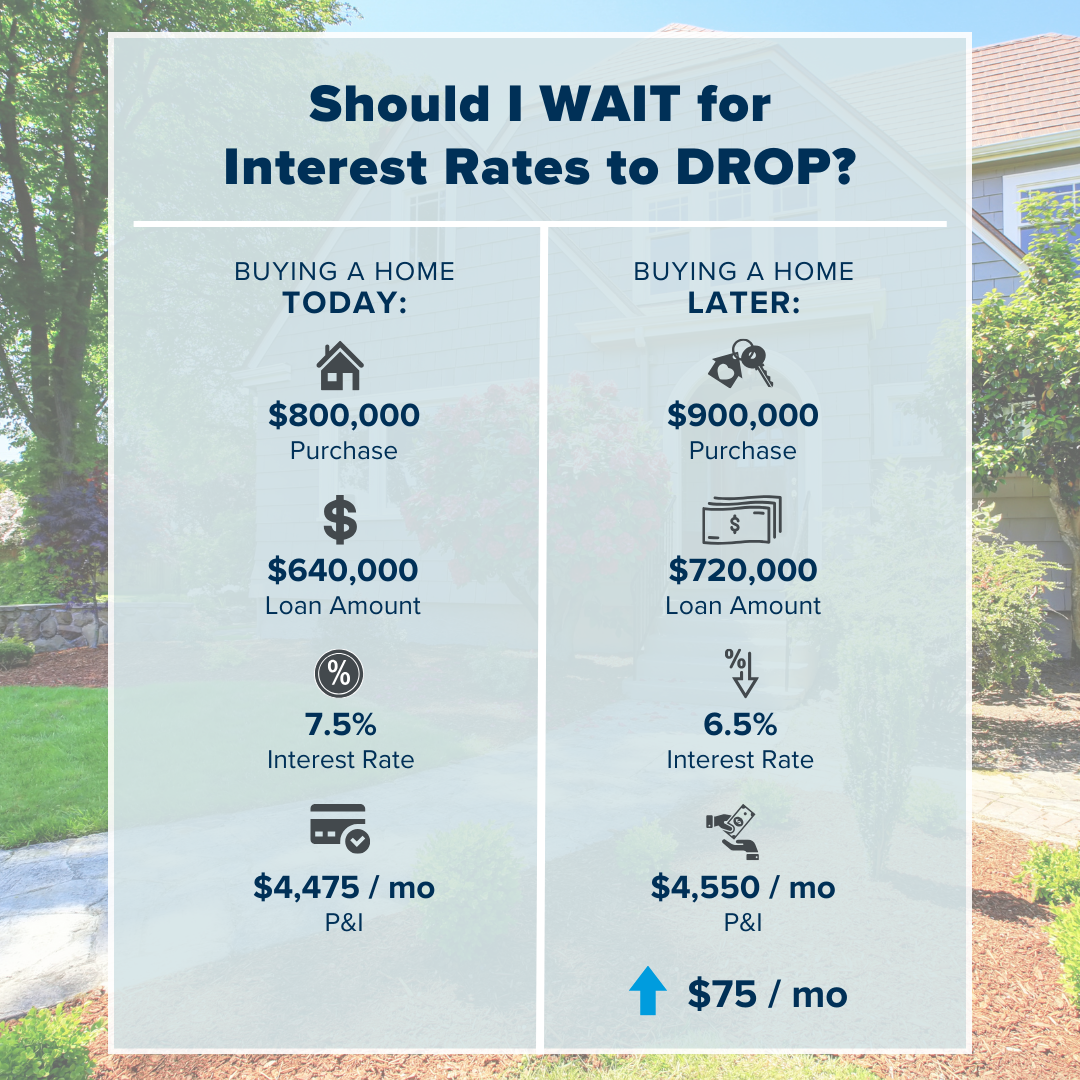 Experts predict rates to decrease over the next 12-18 months. In fact, we have seen rates drop half a point over the last 30 days. Currently, the 30-year conventional rate is hovering about 7.5%. We saw a correction in prices when rates jumped by a point and crested 6% in mid-2022. Since Dec 2022, prices found their bottom, and price appreciation started happening again. Year-to-date, the average interest rate has been around 7% and prices have not been in a free fall, they have grown and remain stable.
Experts predict rates to decrease over the next 12-18 months. In fact, we have seen rates drop half a point over the last 30 days. Currently, the 30-year conventional rate is hovering about 7.5%. We saw a correction in prices when rates jumped by a point and crested 6% in mid-2022. Since Dec 2022, prices found their bottom, and price appreciation started happening again. Year-to-date, the average interest rate has been around 7% and prices have not been in a free fall, they have grown and remain stable.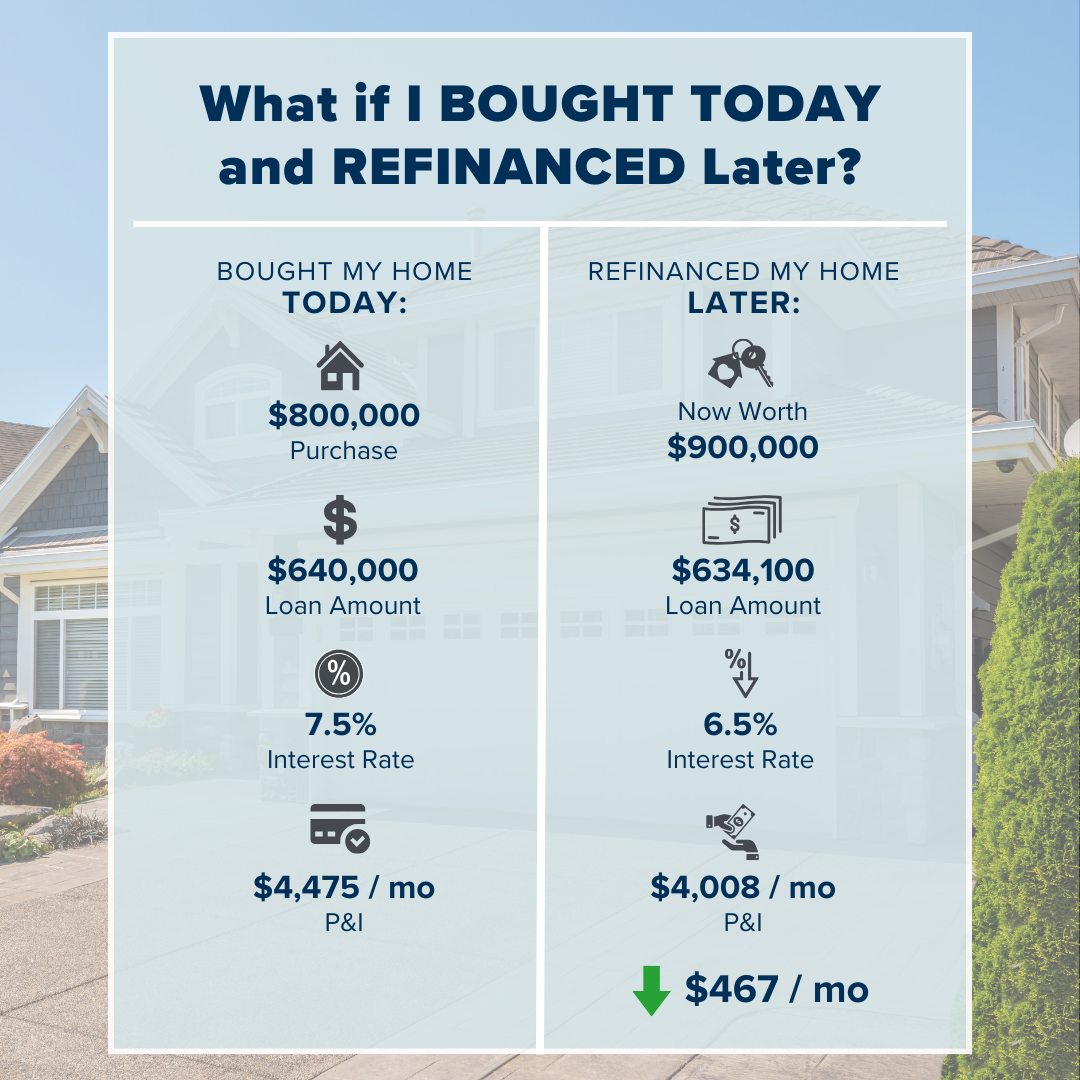 If one is able to afford a purchase now with today’s rate, they can refinance when rates go down and save themselves a lot of money on their payment while keeping a fixed price. Additionally, if a buyer can secure a rate buydown, such as a 2-1 buydown, the higher rates can be overcome and a refinance can fix the rate when the rates drop.
If one is able to afford a purchase now with today’s rate, they can refinance when rates go down and save themselves a lot of money on their payment while keeping a fixed price. Additionally, if a buyer can secure a rate buydown, such as a 2-1 buydown, the higher rates can be overcome and a refinance can fix the rate when the rates drop. You see, there are many options to consider when a buyer is balancing rates, prices, payments, and their desire to make a move. I understand that I am in the business of helping people navigate big life changes while ensuring their financial investment is sound. I felt it was an important message to share these examples in case you or someone you know was thinking about making a purchase but was feeling confused or stifled by the current rate environment. If you want to learn more or need a referral to a reputable lender, please reach out. It is always my goal to help keep my clients well-informed and empower strong decisions.
You see, there are many options to consider when a buyer is balancing rates, prices, payments, and their desire to make a move. I understand that I am in the business of helping people navigate big life changes while ensuring their financial investment is sound. I felt it was an important message to share these examples in case you or someone you know was thinking about making a purchase but was feeling confused or stifled by the current rate environment. If you want to learn more or need a referral to a reputable lender, please reach out. It is always my goal to help keep my clients well-informed and empower strong decisions. As we approach the Thanksgiving holiday, I want to let you know how grateful I am for YOU! Your friendship, support, and referrals have helped fuel my business and support my family. Thank you!
As we approach the Thanksgiving holiday, I want to let you know how grateful I am for YOU! Your friendship, support, and referrals have helped fuel my business and support my family. Thank you!


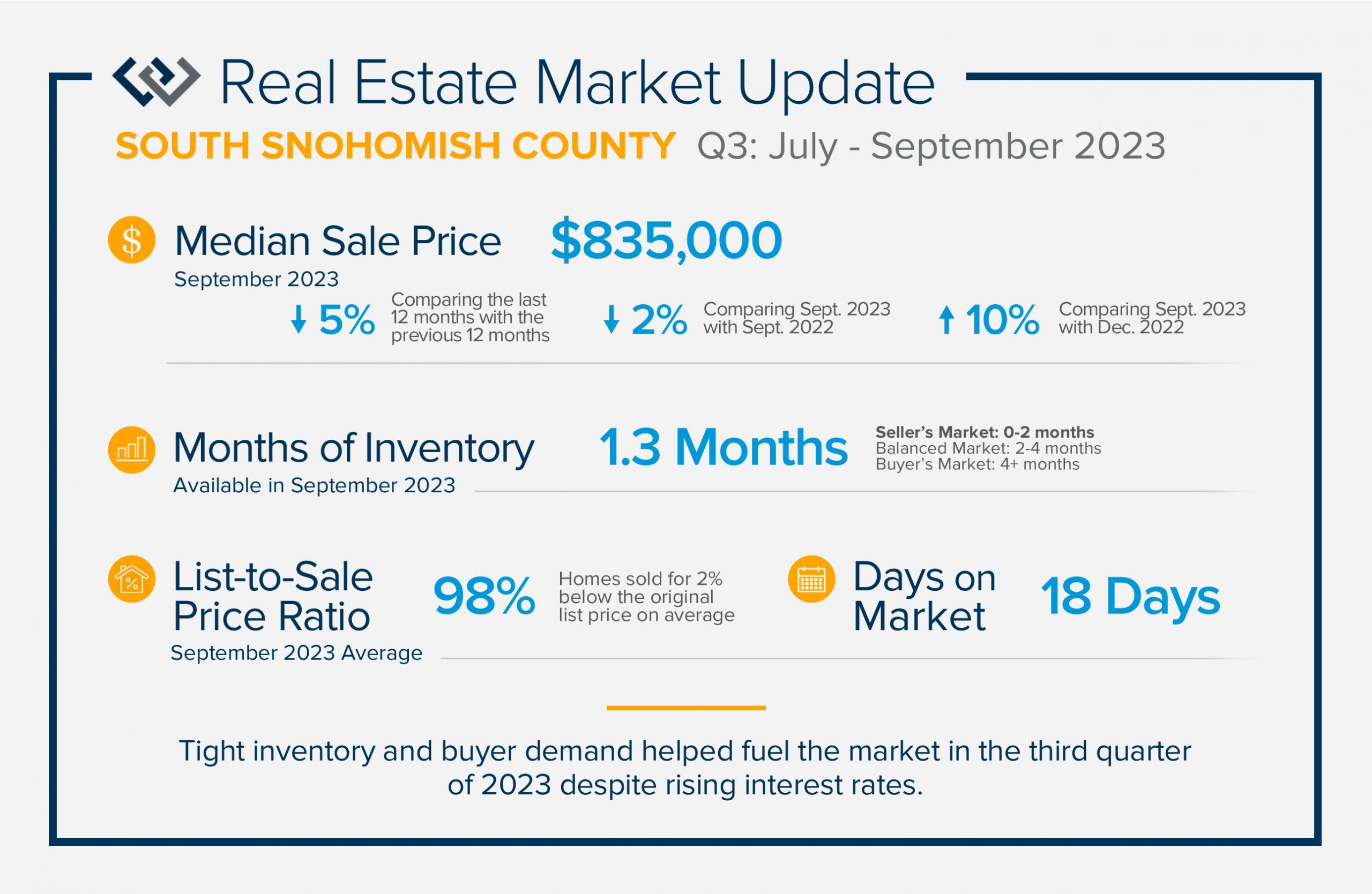
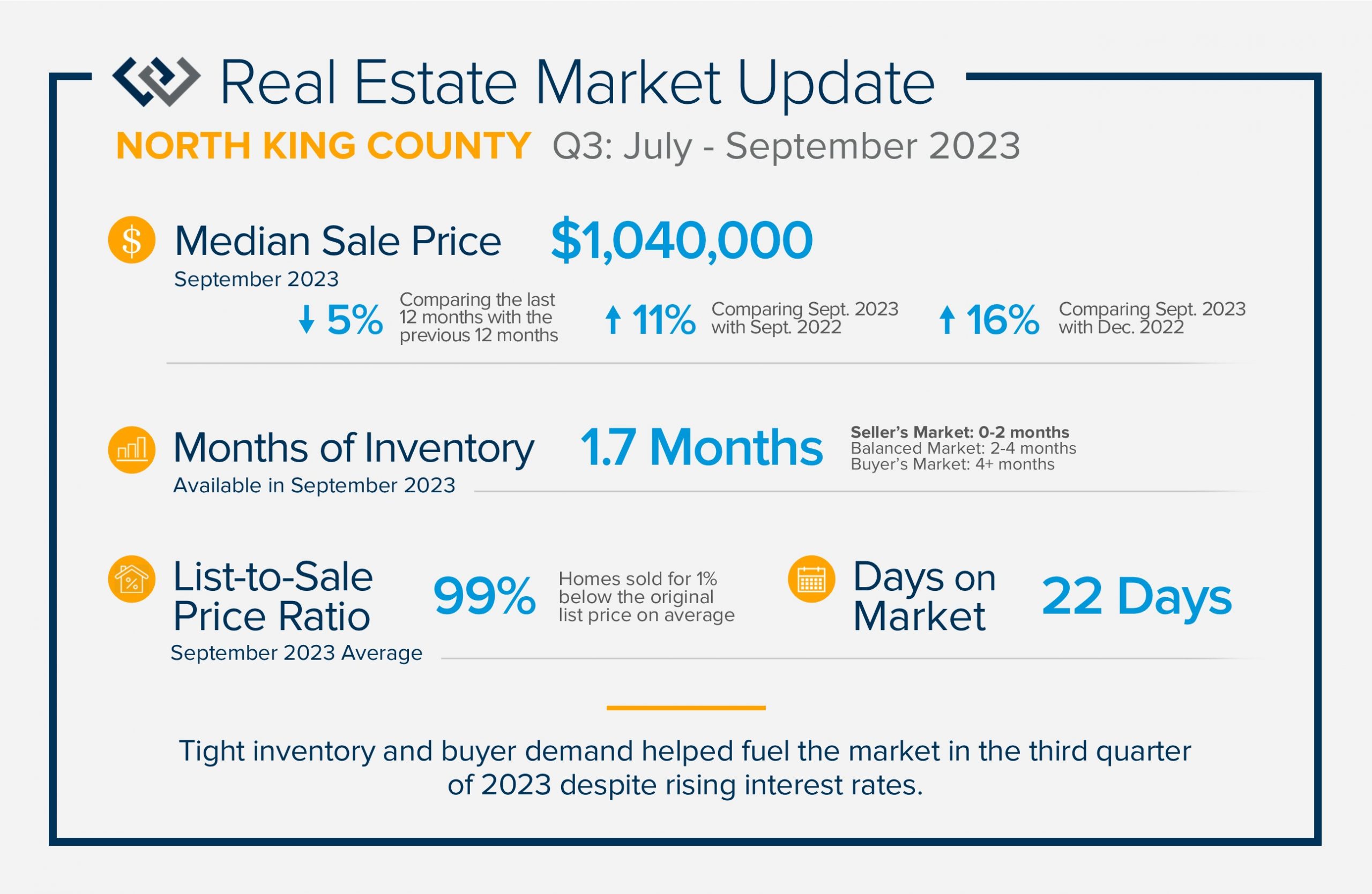 Tight inventory and buyer demand helped fuel the market in the third quarter of 2023 despite rising interest rates. There have been fewer listings in 2023 than in 2022 which has created price growth since the first of the year. Prices peaked in spring 2022, corrected in the second half of 2022, and then they started to rise again in 2023. Home equity is high with over 50% of all homeowners having 50% or more equity in their homes.
Tight inventory and buyer demand helped fuel the market in the third quarter of 2023 despite rising interest rates. There have been fewer listings in 2023 than in 2022 which has created price growth since the first of the year. Prices peaked in spring 2022, corrected in the second half of 2022, and then they started to rise again in 2023. Home equity is high with over 50% of all homeowners having 50% or more equity in their homes.